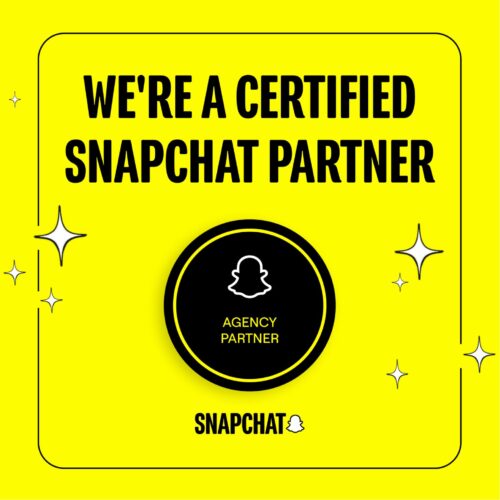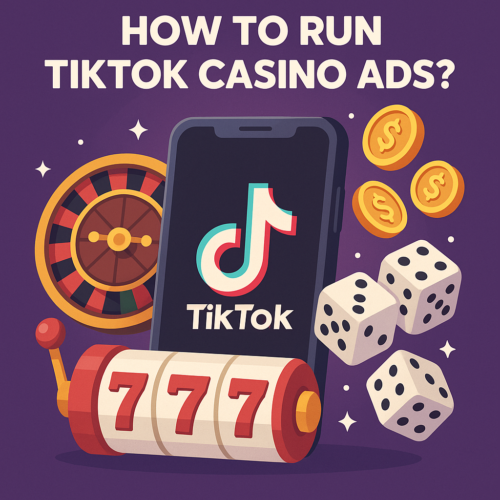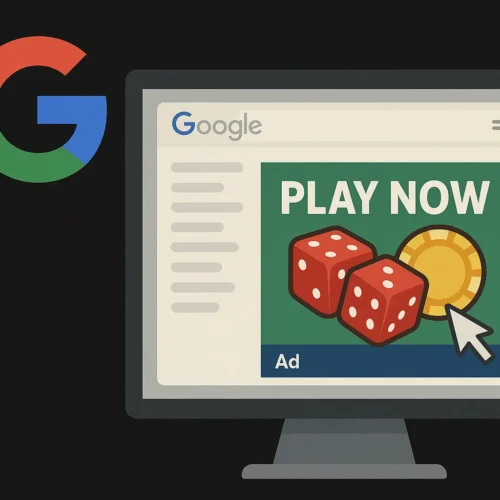The gambling industry generates billions in revenue annually, but advertising these services on Google requires navigating one of the most complex and heavily regulated advertising frameworks in digital marketing. With Google’s April 2025 policy updates introducing stricter certification requirements and enhanced enforcement mechanisms, gambling advertisers face unprecedented challenges in running compliant campaigns.
This comprehensive google gambling ads tutorial will guide you through every aspect of successfully advertising gambling services on Google’s advertising platform while maintaining full compliance with evolving regulations. Whether you’re operating online casinos, sports betting platforms, or social casino games, understanding these requirements is essential for avoiding account suspension and maximizing your advertising effectiveness.
What sets 2025 apart is Google’s shift toward website-specific certifications, restricted personalized targeting, and immediate suspension policies for violations. These changes affect everything from real money gambling operations to social casinos, making compliance knowledge more critical than ever for gambling businesses.
Understanding Google’s Gambling Advertising Framework
Google’s gambling advertising framework operates under strict guidelines that distinguish between various types of gambling activities and enforce geographic restrictions across global markets. The advertising platform requires all gambling advertisers to demonstrate compliance with local gambling laws and obtain proper certification before running gambling ads.
The framework categorizes gambling content into distinct types: online gambling encompassing online casinos and sports betting platforms, offline gambling covering physical establishments, and social casino games that simulate gambling without real monetary transactions. Each category has specific certification requirements and geographic limitations that advertisers must navigate carefully.
Geographic restrictions form a cornerstone of Google’s policies, with 21 countries completely banned from offline gambling advertising, including Bulgaria, China, India, and several nations across Africa and the Middle East. These restrictions reflect local regulations and cultural considerations that Google must respect to maintain platform access in various markets.
The April 2025 policy updates represent the most significant changes to Google’s gambling advertising framework in over a decade. These updates require website-specific certifications rather than blanket approvals, meaning operators must obtain separate certification for each country where they plan to advertise. Additionally, personalized targeting capabilities have been restricted, limiting advertisers’ ability to use detailed demographic and behavioral targeting for gambling related ads.
Mandatory compliance with local gambling laws remains non-negotiable, requiring advertisers to maintain valid licenses from recognized authorities such as the Malta Gaming Authority, UK Gambling Commission, or equivalent regulatory bodies in their target markets. This compliance extends beyond licensing to include responsible gambling provisions, age verification systems, and consumer protection measures.
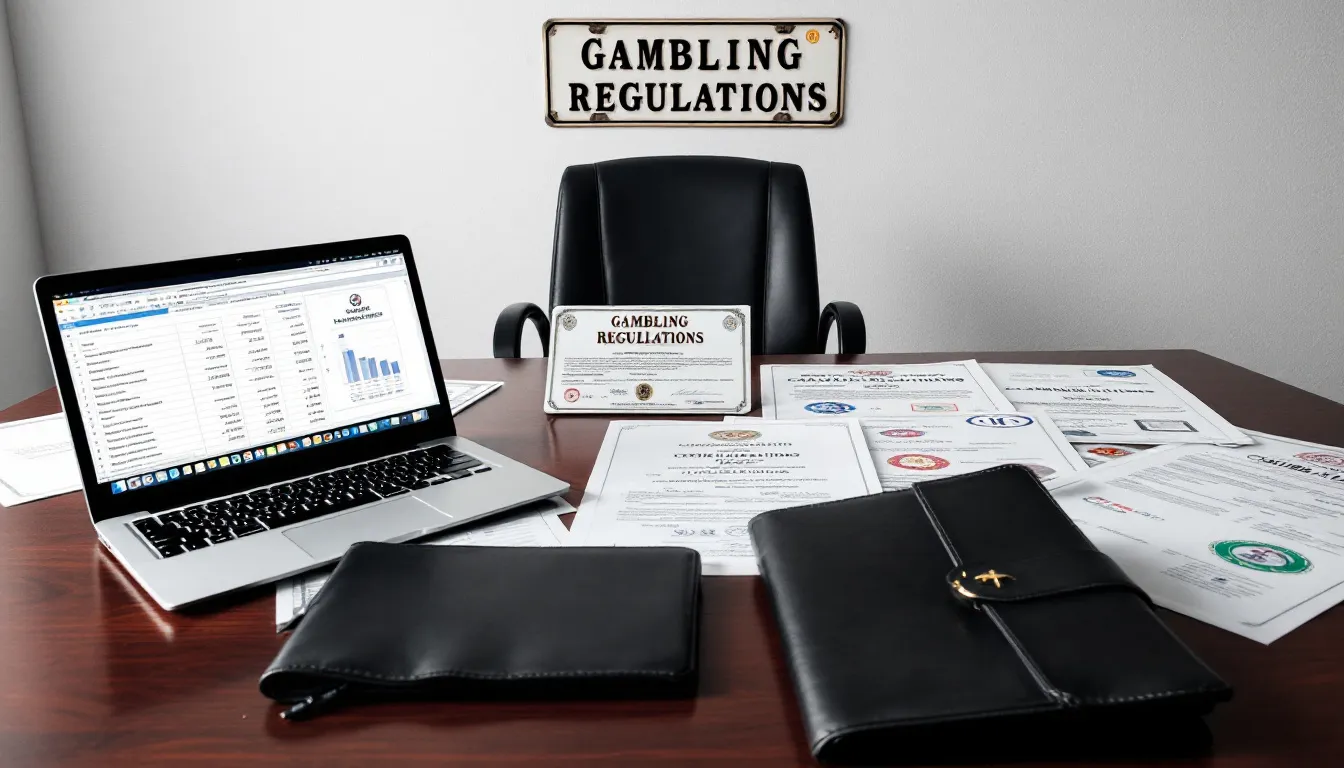
Types of Gambling Ads Allowed on Google
Google permits specific categories of gambling advertisements, each with distinct requirements and restrictions that gambling advertisers must understand before launching campaigns. The platform’s approach to gambling advertising reflects a balance between business opportunities and regulatory compliance across diverse global markets.
Online gambling represents the largest category of permitted gambling ads, encompassing online casinos, online sports betting platforms, online bingo, and virtual currency games. All online gambling advertisements require proper certification and must target only approved countries where such activities are legally permitted. Operators must demonstrate valid licensing from recognized gambling authorities and implement robust age verification systems.
Offline gambling covers advertisements for physical casinos, betting establishments, and traditional gambling venues. While these ads face fewer technical restrictions than online gambling content, they’re subject to significant geographic limitations, with 21 countries explicitly prohibiting such advertising. Offline gambling advertisers must still obtain certification and comply with local advertising regulations.
Social casino games occupy a unique position in Google’s framework, representing simulation games that replicate casino experiences without offering real money prizes. Despite not involving real money gambling, these applications require separate certification processes and must clearly distinguish themselves from real money gambling services in their advertising content.
Online non-casino games include skill-based games, daily fantasy sports, and crane games that may involve monetary transactions but don’t constitute traditional gambling activities. Certification requirements for these services vary based on local regulations and the specific mechanics of each game type.
Prohibited content includes gambling aggregators, unlicensed gambling services, and real-money Mahjong games in the Asia Pacific region. Google’s policies explicitly ban advertisements promoting illegal gambling services or directing users to unlicensed operators, regardless of the advertiser’s own licensing status.
The distinction between these categories affects everything from ad content requirements to landing page specifications, making proper classification essential for successful campaign approval and ongoing compliance.
Step 1: Obtaining Google Ads Gambling Certification
Obtaining Google ads certification represents the mandatory first step for any business planning to run gambling ads on Google’s advertising platform. This certification process serves as Google’s primary mechanism for verifying advertiser legitimacy and ensuring compliance with both platform policies and local gambling laws.
Google offers three distinct certification types designed to accommodate different business models within the gambling industry. Private Operators certification applies to commercially licensed gambling businesses, State-Run Entities certification covers government-operated gambling services, and Social Casino Games certification addresses simulation gambling applications that don’t involve real money transactions.
The certification process requires extensive documentation, including valid gambling licenses from recognized regulatory authorities. Accepted licensing bodies include the Malta Gaming Authority, UK Gambling Commission, New Jersey Division of Gaming Enforcement, and equivalent authorities in other jurisdictions where gambling is legally regulated. Google maintains updated lists of accepted licensing authorities and regularly reviews certification criteria.
Website-specific certification, introduced in 2025, requires separate approval for each country where advertisers plan to promote gambling services. This change from previous blanket approvals means operators must demonstrate compliance with local regulations in each target market, significantly increasing the complexity of multi-market campaigns.
The verification process involves checking submitted documentation against official regulatory databases, with stricter penalties for falsification or misrepresentation. Google’s enhanced verification systems can detect discrepancies in licensing information, making accurate documentation essential for approval.
Timeline expectations for certification approval typically range from 2-4 weeks, though complex applications or additional documentation requests can extend this period. Advertisers should plan accordingly and begin certification processes well before planned campaign launch dates.
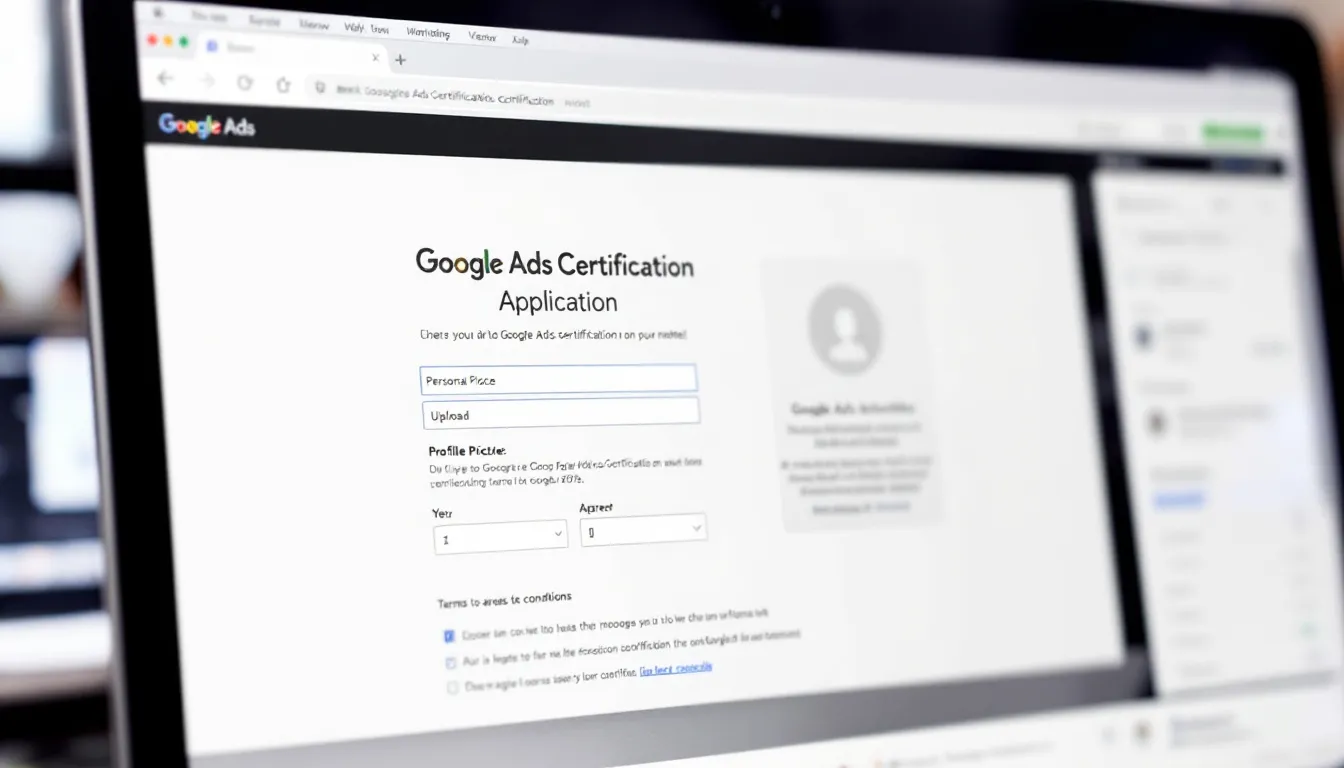
Private Operator Certification Process
Private operator certification follows a structured application process designed to verify commercial gambling operators’ legitimacy and regulatory compliance. This certification type applies to the majority of gambling businesses advertising on Google, including online casinos, sports betting platforms, and poker rooms.
The application process begins with gathering required documentation, including current gambling licenses from recognized authorities, regulatory compliance certificates, and business registration documents. Operators must provide complete licensing information for each jurisdiction where they’re authorized to operate, as licensing requirements vary significantly between markets.
Required licensing documentation must demonstrate active, valid licenses with no pending regulatory actions or compliance violations. Google’s verification team cross-references submitted information with official regulatory databases, making accurate and up-to-date documentation essential for approval.
Common approval delays often result from incomplete documentation, expired licenses, or discrepancies between submitted information and regulatory records. Advertisers can avoid these delays by conducting thorough pre-application audits of their licensing status and ensuring all documentation reflects current regulatory standing.
Maintaining certification status requires ongoing compliance monitoring and prompt notification of any licensing changes. Operators must immediately report license suspensions, revocations, or regulatory actions to Google, as failure to disclose such changes can result in permanent account suspension.
Renewal requirements vary based on license duration and regulatory changes in target markets. Google typically requires annual certification reviews, though significant regulatory changes or compliance incidents may trigger additional review processes.
State-Run Entity Certification
State-run entity certification addresses government-operated gambling services, including state lotteries, government-owned casinos, and official sports betting platforms operated by public entities. This certification category recognizes the unique regulatory position of government-operated gambling services while maintaining compliance standards.
Government-owned gambling operations must demonstrate official authorization from relevant government agencies and compliance with public gaming regulations. Required documentation includes government authorization letters, regulatory compliance certificates, and official operating licenses specific to government-operated gambling services.
Enhanced documentation requirements for state-run entities often include additional verification of government ownership, public accountability measures, and compliance with specific regulations governing government-operated gambling services. These requirements reflect the heightened scrutiny applied to publicly operated gambling platforms.
Examples of qualifying state-run entities include OLG Ontario in Canada, various state lottery systems in the United States, and government-operated casinos in regulated markets. Each entity must demonstrate clear government ownership and official authorization to operate gambling services.
Additional compliance requirements for state-run entities include mandatory age verification systems, enhanced responsible gambling provisions, and transparent reporting mechanisms that meet public accountability standards. These requirements often exceed those applied to private operators due to the public nature of these services.
Enhanced verification processes for government entities involve additional checks of government authorization and may require direct communication with relevant government agencies to confirm operational authority and compliance status.
Step 2: Setting Up Your Google Ads Account
Setting up your google ads account for gambling advertising requires specific configurations that ensure compliance with Google’s policies while enabling effective campaign management. The account setup process differs significantly from standard advertising accounts due to enhanced verification requirements and specialized compliance monitoring systems.
Account configuration begins with linking your approved gambling certification to your Google ads account, a process that must be completed before creating any gambling-related campaigns. This linking process verifies your certification status and enables access to gambling advertising features within the platform.
Separate account requirements apply to different types of gambling services, with online gambling and social casino games often requiring distinct account structures. This separation helps ensure proper policy compliance and enables Google to apply appropriate restrictions and monitoring to each service type.
Account structure best practices for gambling advertisers include organizing campaigns by geographic markets, service types, and compliance requirements. This organization facilitates easier compliance monitoring and enables more precise targeting within Google’s policy constraints.
Billing and payment method considerations for gambling accounts often involve enhanced verification requirements and may include restrictions on certain payment types. Google may require additional financial verification for gambling advertisers due to the regulated nature of the industry and potential for fraudulent activity.
Account security measures for gambling advertisers include mandatory two-factor authentication, regular security audits, and enhanced monitoring for suspicious activity. These measures protect both advertisers and Google from potential fraud or unauthorized account access that could result in policy violations.
Compliance monitoring setup involves configuring automated alerts for policy violations, setting up regular compliance reviews, and establishing procedures for handling potential violations. This proactive approach helps prevent account suspension and ensures ongoing compliance with evolving policies.
Step 3: Geographic Targeting and Compliance
Geographic targeting for gambling ads requires precise configuration to ensure compliance with both Google’s policies and local gambling laws across target markets. The complexity of global gambling regulations makes geographic compliance one of the most challenging aspects of running gambling ads on Google’s advertising platform.
Comprehensive geographic restrictions include complete prohibitions in 21 countries for offline gambling, with additional restrictions on online gambling in numerous other markets. These restrictions reflect local laws, cultural considerations, and regulatory agreements that Google must respect to maintain platform access.
Approved locations for gambling advertising vary significantly based on the type of gambling service and specific local regulations. For example, online casinos may be permitted in certain European markets but prohibited in others, while sports betting may have different restrictions based on local sports betting laws.
Country-specific requirements often include additional compliance measures beyond basic certification, such as local licensing requirements, specific responsible gambling provisions, and compliance with local advertising standards. Advertisers must research and comply with these requirements for each target market.
March 2025 YouTube restrictions introduced additional limitations on gambling advertising across Google’s video platform, including stricter content guidelines and enhanced geographic restrictions. These changes affect video ads and limit the display of gambling content to more narrowly defined approved markets.
Geo-targeting setup requires careful configuration to avoid policy violations, including setting up precise location targeting, implementing location-based bid adjustments, and establishing monitoring systems to ensure campaigns don’t inadvertently serve ads in restricted locations. Advanced geo-targeting options enable advertisers to target specific regions within approved countries while excluding restricted areas.
Tools for verifying local gambling advertising regulations include official regulatory websites, legal compliance services, and specialized gambling law resources. Advertisers should regularly monitor these sources as regulations change frequently and non-compliance can result in immediate account suspension.
Step 4: Creating Policy-Compliant Ad Content
Creating policy-compliant ad content requires careful attention to Google’s specific requirements for gambling advertising while maintaining effectiveness in reaching your target audience. Ad copy guidelines for gambling ads include mandatory elements that must be present in all gambling related content to ensure compliance and user protection.
Responsible gambling messaging requirements form a cornerstone of compliant ad content, requiring inclusion of helpline numbers, support links, and clear disclaimers about gambling risks. These elements must be prominently displayed and easily accessible to users viewing gambling ads across all ad formats.
Age restriction compliance involves implementing clear messaging that gambling services are restricted to users above the legal gambling age and ensuring that ad content doesn’t target minors through imagery, language, or targeting parameters. Google strictly prohibits targeting minors with gambling content and actively monitors for violations.
YouTube-specific restrictions include prohibitions on displaying logos of non-approved gambling services and enhanced content guidelines for video ads. These restrictions limit creative options for video advertising and require careful review of all visual elements to ensure compliance.
Transparency requirements mandate clear disclosure of gambling advertising nature, honest representation of odds and potential outcomes, and avoidance of misleading claims about winning potential or guaranteed outcomes. Advertisements must present gambling as entertainment rather than as a reliable income source.
Ad extension best practices for gambling ads include using site link extensions to direct users to responsible gambling resources, implementing call extensions with verified support numbers, and utilizing location extensions only for approved geographic markets. These extensions must comply with the same standards as primary ad content.
Mandatory disclaimers for gambling ads must include age restrictions, licensing information, and responsible gambling warnings. The specific wording and placement of these disclaimers may vary based on local regulatory requirements in target markets.
Landing Page Requirements
Landing page compliance represents a critical component of gambling advertising success, as Google evaluates destination pages as rigorously as ad content itself. Compliance checklists for gambling landing pages ensure that all required elements are present and properly configured to meet both Google’s policies and local regulatory requirements.
Age verification system implementation requires robust mechanisms for confirming user age before allowing access to gambling services. These systems must be prominently displayed, technically reliable, and compliant with local age verification requirements in each target market.
Terms and conditions transparency involves clear presentation of gambling rules, payout procedures, withdrawal policies, and dispute resolution mechanisms. This information must be easily accessible and written in clear, understandable language that users can readily comprehend.
Responsible gambling resources and support information must be prominently featured on all gambling landing pages, including links to problem gambling organizations, self-exclusion tools, and spending limit controls. These resources demonstrate operator commitment to responsible gambling practices.
Local licensing information display requirements mandate clear presentation of relevant gambling licenses, regulatory authority contact information, and compliance certifications. This information builds user trust and demonstrates legitimate operation within applicable regulatory frameworks.
Technical requirements for gambling landing pages include secure connections (HTTPS), proper age gates, functional responsible gambling tools, and compliance with data protection regulations such as GDPR. These technical elements ensure user safety and regulatory compliance.
Step 5: Campaign Setup and Configuration
Campaign setup for gambling advertising requires specialized configuration to ensure compliance with Google’s policies while maximizing advertising effectiveness within permitted parameters. The campaign structure must accommodate geographic restrictions, content limitations, and enhanced monitoring requirements specific to gambling advertising.
Campaign type selection for gambling advertisers typically focuses on Search campaigns for direct response advertising, Display campaigns for brand awareness in approved markets, and Video campaigns with enhanced compliance monitoring. Shopping campaigns are generally not available for gambling services due to product restrictions.
Keyword research and selection strategies must navigate policy constraints while identifying relevant search terms that gambling users actively seek. This research should focus on informational and service-oriented keywords while avoiding terms that might trigger policy violations or target inappropriate audiences.
Bidding strategies appropriate for gambling campaigns often emphasize manual bidding or enhanced CPC to maintain control over spend and targeting. Automated bidding strategies may be limited due to policy restrictions and the need for careful audience management in gambling advertising.
Budget allocation considerations include planning for potential campaign interruptions due to policy reviews, setting aside funds for compliance-related campaign modifications, and accounting for geographic restrictions that may limit reach compared to standard advertising campaigns.
Ad scheduling and dayparting for gambling campaigns should consider local gambling regulations, responsible gambling practices, and target audience behavior patterns. Some markets restrict gambling advertising during certain hours or days, requiring careful scheduling to maintain compliance.
Campaign-level settings for gambling advertisers include enhanced tracking configurations, geographic exclusions for restricted markets, and demographic targeting limitations that comply with responsible gambling requirements. These settings ensure campaigns operate within policy boundaries while maximizing effectiveness.
Step 6: Monitoring and Optimization
Monitoring and optimization for gambling campaigns requires specialized approaches that balance performance improvement with strict compliance requirements. Key performance metrics tracking extends beyond standard advertising metrics to include compliance indicators and responsible gambling measures.
Google Analytics integration for gambling advertisers involves configuring enhanced tracking while ensuring compliance with data protection regulations and gambling-specific privacy requirements. This integration provides insights into user behavior while maintaining appropriate data handling practices.
Regular policy compliance audits represent essential ongoing activities for gambling advertisers, involving systematic reviews of ad content, landing pages, targeting settings, and campaign performance to identify potential violations before they result in enforcement actions.
Performance optimization within policy constraints requires creative approaches to improving campaign effectiveness while maintaining full compliance. This optimization focuses on refining compliant messaging, improving landing page experiences within policy boundaries, and enhancing targeting precision within allowed parameters.
A/B testing strategies for compliant ad variations enable gambling advertisers to improve performance while ensuring all tested elements maintain policy compliance. Testing should focus on messaging effectiveness, creative approaches, and user experience improvements rather than policy boundaries.
Conversion tracking for gambling campaigns must balance performance measurement needs with responsible gambling considerations and privacy requirements. Tracking configurations should provide meaningful insights while avoiding metrics that might encourage problematic gambling behavior.
Automated monitoring systems help gambling advertisers identify potential policy violations, track compliance metrics, and respond quickly to policy changes or enforcement actions. These systems provide early warning of potential issues and enable proactive compliance management.
Common Issues and Troubleshooting
Common issues in gambling advertising often stem from the complex and evolving nature of Google’s policies combined with the heavily regulated gambling industry environment. Understanding typical problems and their solutions helps gambling advertisers maintain compliant, effective campaigns.
Ad disapproval reasons frequently include insufficient certification documentation, targeting restricted geographic markets, missing responsible gambling messaging, or landing page compliance issues. Each disapproval reason requires specific corrective actions and may involve updating certification information or modifying campaign elements.
Account suspension causes range from policy violations and inadequate certification to suspicious activity or regulatory changes affecting licensing status. Account suspensions can be temporary or permanent, depending on the severity and nature of the violation.
Policy violation penalties vary from warnings for minor infractions to permanent bans for serious violations such as promoting illegal gambling services or deliberately circumventing policies. The severity of penalties has increased significantly with the 2025 policy updates.
Social casino games face immediate suspension risks despite not involving real money gambling, as Google applies strict scrutiny to these applications to prevent confusion with real money gambling services. Clear differentiation and proper certification are essential for social casino advertising.
Certification renewal and maintenance issues can disrupt ongoing campaigns if not properly managed. These issues often arise from expired licenses, regulatory changes, or administrative oversights that affect certification status.
Cross-border advertising compliance challenges emerge when operating in multiple jurisdictions with varying regulations. These challenges require careful management of certification requirements, local law compliance, and geographic targeting to avoid violations.
Appeal processes for policy violations involve submitting detailed explanations, corrective action plans, and updated documentation to demonstrate compliance. Successful appeals require thorough understanding of policy requirements and clear communication of resolution steps.
Policy Updates and Staying Compliant
Policy updates in gambling advertising occur frequently as Google responds to regulatory changes, industry developments, and platform safety considerations. The 2025 policy changes represent the most comprehensive update in recent years, fundamentally altering how gambling advertising operates on Google’s platform.
The April 2025 policy changes introduced website-specific certifications, enhanced enforcement mechanisms, restricted personalized targeting, and stricter compliance monitoring. These changes require ongoing adaptation from gambling advertisers and continuous monitoring of campaign compliance.
Implementation timelines for policy changes typically provide limited transition periods, requiring gambling advertisers to adapt quickly to maintain campaign continuity. The 2025 updates included immediate enforcement for new applications and staged implementation for existing certified advertisers.
Monitoring Google Ads policy update announcements requires systematic attention to official communications, industry publications, and regulatory news that might influence future policy changes. Google provides advance notice of major changes when possible, but enforcement can begin immediately upon announcement.
Industry resource recommendations for staying informed include gambling industry trade publications, regulatory authority websites, digital marketing blogs specializing in gambling advertising, and professional associations focused on gambling marketing. These resources provide early indicators of potential policy changes.
Proactive compliance strategies involve regular policy reviews, ongoing certification maintenance, compliance training for marketing teams, and establishing relationships with legal experts specializing in gambling advertising. These strategies help prevent violations and enable quick adaptation to policy changes.
Building relationships with Google Ads support teams specialized in gambling accounts can provide valuable insights into policy interpretations, compliance best practices, and early notification of potential issues. These relationships facilitate smoother operations and faster resolution of compliance questions.
Documentation and record-keeping for compliance purposes should include copies of all certifications, campaign configurations, policy communications, and compliance audits. Comprehensive documentation supports appeal processes and demonstrates good faith compliance efforts.
Alternatives to Google Ads for Gambling Marketing
While Google Ads offers extensive reach and sophisticated targeting capabilities, the platform’s strict policies and complex compliance requirements make alternative advertising channels valuable components of comprehensive gambling marketing strategies. Understanding these alternatives helps gambling operators diversify their marketing efforts and reduce dependence on a single platform.
Blockchain-Ads and specialized gambling ad networks provide alternatives designed specifically for gambling operators, offering coverage across 250+ geographic markets with policies tailored to the gambling industry. These networks understand gambling-specific compliance requirements and often provide more flexible advertising options than general-purpose platforms.
Affiliate marketing programs represent traditional gambling marketing approaches that leverage commission-based partnerships with affiliates who promote gambling services through their own channels. These programs can provide significant reach while transferring compliance responsibilities to individual affiliates.
Social media advertising options vary significantly across platforms, with some offering limited gambling advertising opportunities while others maintain strict prohibitions. Platform-specific policies require careful evaluation to determine viable advertising opportunities within compliance constraints.
iGaming SEO and content marketing approaches enable gambling operators to build organic visibility through informational content, gambling guides, and educational resources that attract potential customers without paid advertising restrictions. These strategies require long-term investment but can provide sustainable traffic sources.
Comparing costs, reach, and compliance requirements across platforms reveals different advantages and limitations for each alternative. While Google Ads offers unmatched reach, alternative platforms may provide easier compliance, lower costs, or more specialized audience targeting for gambling services.
Email marketing and direct communication strategies enable gambling operators to maintain relationships with existing customers while promoting new services or special offers. These approaches require careful compliance with anti-spam regulations and responsible gambling requirements.
Sponsorship and partnership opportunities in sports, entertainment, and media provide brand visibility and association with relevant content that attracts gambling audiences. These partnerships must comply with both advertising regulations and sponsorship-specific gambling restrictions.

Advanced Strategies and Best Practices
Advanced strategies for gambling advertising on Google require sophisticated understanding of policy constraints combined with creative approaches to maximizing advertising effectiveness within compliance boundaries. These strategies help experienced gambling advertisers optimize their campaigns while maintaining strict adherence to platform policies.
Multi-platform advertising coordination involves integrating Google Ads with other advertising channels to create comprehensive marketing strategies that leverage each platform’s strengths while compensating for individual limitations. This coordination requires careful budget allocation and consistent messaging across platforms.
Seasonal campaign planning for gambling advertisers must consider regulatory changes, major sporting events, holiday patterns, and responsible gambling considerations that affect campaign timing and messaging. Effective planning anticipates these factors and adapts campaigns accordingly.
Competitive analysis within policy constraints involves monitoring competitor strategies, messaging approaches, and market positioning while ensuring all analysis activities comply with platform policies and industry regulations. This analysis informs strategic decisions without violating competitive intelligence restrictions.
Customer lifecycle optimization for gambling businesses focuses on acquiring compliant traffic, nurturing customer relationships through responsible gambling practices, and maximizing customer lifetime value while maintaining regulatory compliance. This optimization requires balancing business objectives with responsible gambling obligations.
ROI measurement and attribution modeling for gambling campaigns must account for compliance costs, regulatory requirements, and responsible gambling limitations that affect traditional performance metrics. Accurate measurement includes compliance-related expenses and long-term customer value considerations.
Advanced targeting strategies work within Google’s restrictions to identify and reach relevant audiences through compliant targeting methods, geographic precision, and demographic approaches that maintain policy compliance while maximizing advertising effectiveness.
Creative testing and optimization approaches focus on improving ad performance through compliant messaging variations, responsible gambling integration, and user experience enhancements that operate within policy boundaries while driving better results.
Future of Google Gambling Advertising
The future of Google gambling advertising will likely be shaped by continuing regulatory evolution, technological advances, and platform policy adaptations that respond to changing industry conditions and societal concerns about gambling advertising and its impacts.
Trends in gambling advertising regulation suggest increasing standardization across jurisdictions, enhanced consumer protection requirements, and more sophisticated compliance monitoring systems. These trends will influence Google’s policy development and enforcement approaches in coming years.
Emerging technologies including AI and machine learning will likely play larger roles in both advertising optimization and compliance monitoring, enabling more sophisticated targeting while improving detection of policy violations and problematic gambling behavior.
Mobile-first strategies and app promotion considerations will become increasingly important as gambling consumption shifts toward mobile devices and app-based services. These changes will require adaptation of advertising approaches and compliance measures for mobile environments.
Cryptocurrency and blockchain gambling advertising represents an emerging area where regulations are still developing, potentially creating new opportunities and challenges for gambling advertisers as these technologies become more mainstream and regulated.
Preparing for future policy changes requires maintaining flexible campaign structures, staying informed about regulatory developments, building adaptable compliance systems, and developing relationships with platform representatives who can provide guidance on evolving requirements.
The integration of responsible gambling measures into advertising technology will likely advance, potentially including real-time monitoring of user behavior, automated intervention systems, and enhanced data sharing between platforms and regulatory authorities.
Cross-platform policy convergence may occur as major advertising platforms align their gambling advertising policies to create more consistent industry standards while maintaining competitive differentiation in approved features and targeting capabilities.
Long-term sustainability of gambling advertising on major platforms will depend on demonstrating positive social impact, maintaining regulatory compliance, and adapting to evolving societal attitudes toward gambling and its promotion through digital advertising channels.

To summarize
Successfully navigating google ads for gambling advertising in 2025 requires comprehensive understanding of complex policies, meticulous attention to compliance details, and ongoing adaptation to evolving requirements. The April 2025 policy updates have fundamentally changed how gambling businesses can promote their services on Google’s advertising platform, making expertise in these areas essential for success.
The certification process represents the foundation of compliant gambling advertising, requiring proper documentation, ongoing maintenance, and immediate response to regulatory changes that might affect certification status. Gambling advertisers must treat certification as an ongoing compliance requirement rather than a one-time achievement.
Geographic targeting and content compliance work together to ensure campaigns reach appropriate audiences while maintaining full adherence to local gambling laws and Google’s policies. The complexity of global gambling regulations makes careful planning and monitoring essential for avoiding violations that could result in account suspension.
The gambling industry will continue evolving alongside digital advertising platforms, requiring gambling advertisers to stay informed about regulatory changes, policy updates, and industry best practices. Success in this environment demands combining marketing expertise with compliance knowledge and regulatory awareness.
For gambling businesses ready to advertise on Google’s platform, begin with obtaining proper certification for your specific gambling services and target markets. Invest time in understanding policy requirements thoroughly, and consider working with specialists who understand both gambling regulations and Google’s advertising policies to ensure compliant, effective campaigns that drive sustainable business growth.



